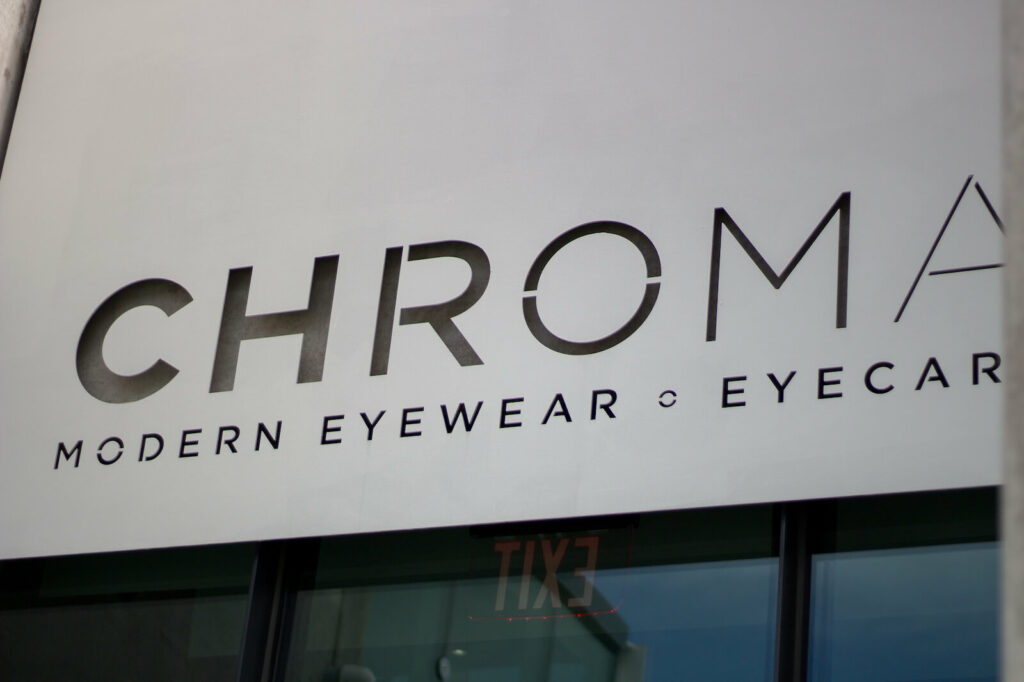Dry eye disease and eye allergies are 2 common ocular conditions that affect millions of people. But which are you dealing with? Even though dry eyes often accompany allergies, allergies won’t cause dry eye disease, which is a chronic condition with several causes.
At CHROMA modern Eyewear Eyecare, we’re dedicated to providing comprehensive eye care through diagnostic technology and incredible customer service. Learn more about how we can help you deal with uncomfortable symptoms, regardless if they’re from dry eyes or allergies.
What Is Dry Eye?
Dry eye disease or syndrome is often referred to as simply dry eye. It’s characterized by either an inadequate amount of tears or a problem with the tear film’s mixture. The 2 subtypes of dry eye are evaporative dry eye (EDE) and aqueous deficient dry eye (ADDE).
ADDE is a lack of tear production. Sjögren’s disease is one of the most common risk factors for this form of dry eye due to how it affects moisture in our body, such as tears and saliva. Age is another significant factor in developing ADDE.
On the other hand, EDE has very little to do with how many tears your eye produces. Instead, this form of dry eye develops when there is an imbalance of oil to liquid in the tear film mixture. This causes the premature evaporation of tears in your eyes and the uncomfortable symptoms that follow.
A lot more things can cause EDE. One of the most common causes is meibomian gland dysfunction (MGD). This is a condition where the meibomian glands do not work correctly, which can lead to insufficient oil mixing into the tear film.
Other causes for EDE may include:
- Eye injury or eye surgery
- Digital eye strain
- Vitamin A deficiency
- Certain medications, such as antidepressants, hormone replacement therapy, or even the allergy medicine you take for your seasonal eye allergies
- Extended wear of contact lenses
- Eye allergies can aggravate MGD and increase or cause dry eye symptoms
- Environmental factors, such as wind, smoke, or dry air
Treating Dry Eyes
Several treatments may be available regardless of what’s causing your dry eyes. Our eye doctors at CHROMA can diagnose the root of your symptoms during a comprehensive eye exam. We can also recommend appropriate treatment based on the cause of your symptoms.
Some common dry eye treatments include:
- Using lubricating eye drops (preservative-free for long-term use to avoid irritation from the chemical preservatives)
- Warm compress
- Using a humidifier at home or the office
- Staying hydrated
- Eyelid cleaning and massage
If these at-home remedies aren’t providing the relief you need, at CHROMA we offer several potential treatment options:
- Medicated eye drops such as Restasis & Xiidra, as well as ones containing steroids
- Amniotic membranes
- Autologous serum drops
- Punctal plugs
Allergies & Dry Eye
Based on some of the causes we’ve reviewed, such as environmental factors or antihistamine medications, allergies and dry eyes are connected. And while one may not cause the other, they can often happen simultaneously and increase the severity of each other’s symptoms.

Eye Allergies
Eye allergies are also referred to as allergic conjunctivitis. Allergens can cause an allergic reaction in the conjunctiva and eyelids. One thing to remember about allergic conjunctivitis is that it isn’t contagious.
Eye allergies often accompany nasal allergies. So, if you’re dealing with a runny nose, sneezing, or congestion along with your red, dry eyes, you may be experiencing allergies rather than dry eye disease.
Eye Allergy Causes
Airborne allergens are among the most common causes of eye allergies. You can experience contact with these allergens indoors or out. Some common allergens include:
- Pet dander
- Dust
- Pollen
- Mould
- Smoke
- Perfumes or other cosmetics
- Preservatives in eye drops
Treating Eye Allergies
Avoiding allergens is one of the ways to reduce eye allergies. For example, if you know you’re sensitive to pollen and dust, you’ll want to minimize your time outside during peak pollen and dust seasons and protect your eyes with sunglasses. This can lower the risk of these allergens entering your eyes.
Other possible treatments include:
- Lubricating eye drops to maintain your tear film, which helps protect against allergens.
- Antihistamine medications—remember that some of these may cause dry eyes, so you may want to use them with eye drops.
- Warm compresses
- Keep windows closed
- Wash bedding often
Find Out More About Dry Eye & Allergies
If you’re dealing with uncomfortable symptoms like dry, irritated eyes. Or maybe they’re an unsightly red and watering all the time. If the remedies we suggested aren’t helping, give us a call today.The professional eye care team at CHROMA can answer your questions and identify what is causing your dry eye symptoms. Book in with one of our experienced eye Doctors and we will help bring relief to your eyes.



